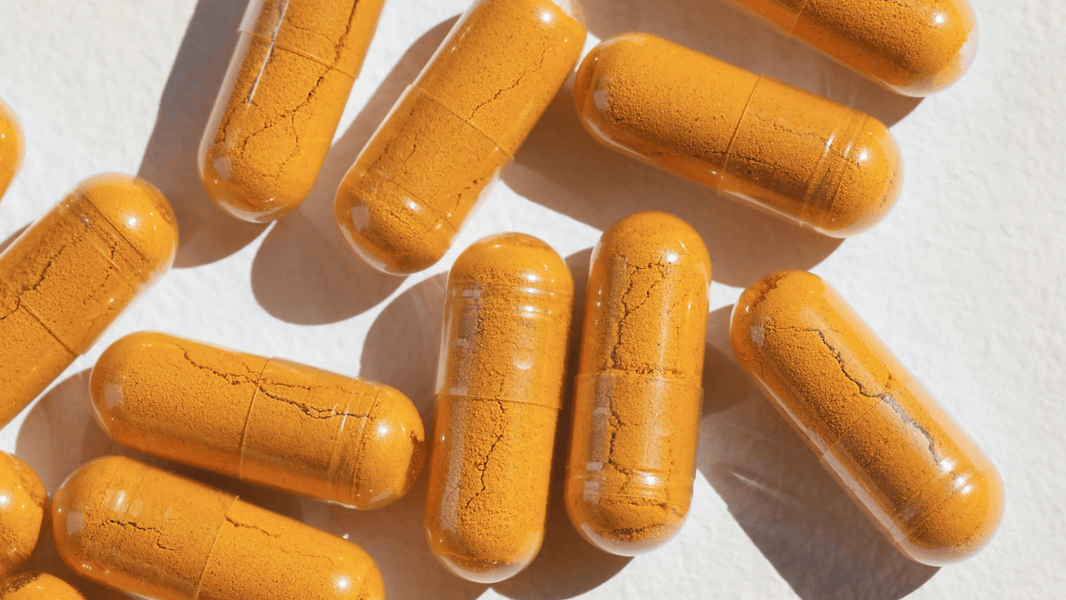In recent years, dietary supplements have made a place in our daily lives.
We take it because the doctor recommended it, and after all, if it's on the pharmacy shelf, it must be reliable, right? We also sometimes buy it out of desire: because we want to take care of our health, because we tell ourselves that a little help can't hurt, or simply because an advertisement has piqued our curiosity.
But behind this seemingly simple gesture, a question persists: Do we really know what we're consuming? What do these products contain? Are they really necessary? And above all, do they keep all their promises? In reality, their role, how they work, and even their effectiveness often remain unclear. This lack of clarity is not surprising: the dietary supplement market is vast, complex, and sometimes difficult to decipher.
In this first article, Compleo invites you to go beyond preconceived notions to discover the essentials of what you need to know about dietary supplements. Because it's important to consume them safely and, above all, because it's important for you to be able to form your own critical opinion about these products.
The use of dietary supplements should never be taken lightly. We always recommend seeking advice from a qualified healthcare professional before beginning any treatment to ensure the product is suitable for your needs and health.
What is a dietary supplement?
Before delving into the subject, it's essential to define what a dietary supplement is. In France, their status is based on a clear legal framework, established by European Directive 2002/46/EC.
Dietary supplements are foods designed to supplement the normal diet. They are a concentrated source of nutrients such as vitamins, minerals, or other bioactive substances with a nutritional or physiological effect.
Concretely, this could be vitamin capsules to strengthen immunity, mineral tablets to reduce fatigue, or even plant extracts in powder form to promote sleep or digestion.
The line between dietary supplements and medications is often a question of dosage. A vitamin or mineral can be a dietary supplement at low doses, but become a medication at higher doses. For example, vitamin C is considered a simple nutrient at 120 mg/day, but can become pharmacological at doses above 180 mg/day.
⚠️ An essential point to remember : Dietary supplements are not a substitute for a varied and balanced diet. They are there to complement, not replace. So why is their popularity constantly increasing?
Why are dietary supplements so successful?
It's hard to miss: dietary supplements are everywhere. In France, they represent €2.7 billion in 2023, a figure that's constantly growing (+3% compared to 2022). Why? Because they meet a growing demand: that of finding balance in an often chaotic daily life.
They are purchased in pharmacies, a reassuring channel that largely dominates sales (54%) thanks to the advice of healthcare professionals. They are also ordered from online platforms, which are convenient and fast, where e-commerce is gaining ground (+2%). Organic stores, once essential, are experiencing a slight decline (-8%), reflecting a changing market.
Very specific expectations
But what exactly are we looking for in these little capsules or sachets of powder?
- Strengthening your immunity: for 48% of consumers, the idea is clear: better resist viruses and minor bouts of fatigue.
- Being in shape: 44% hope for a boost of energy to keep up the pace.
- Regulating stress: for 31%, it is a way to ease the tensions of an often too demanding daily life.
Fatigue, stress, the need to sleep better or feel "on top": dietary supplements are becoming part of our lives as simple and accessible solutions for taking care of ourselves.
But behind this popularity, one question remains: are they really effective, and are all products really equal? This is where the topic gets interesting.
Why are dietary supplements divisive?
💊 Products of uneven quality
The dietary supplement industry encompasses products ranging from high-quality to highly questionable. Some are supported by solid scientific studies, while others are largely based on seductive but unreliable marketing. Poorly dosed substances, unnecessary additives, or poorly controlled products can damage the industry's overall reputation. We also recommend that you be wary of any marketing communications such as "anti-aging elixirs" or "fat burners."
🪄 Often unrealistic expectations
For their part, some consumers hope for spectacular results: losing 10 kg in a month, gaining energy in a few days, or instantly boosting their immunity. These exaggerated expectations lead to disappointment and fuel skepticism around dietary supplements. One thing to remember: dietary supplements are not miracle solutions!
However, should we reject them outright? Not necessarily. To understand their true value, it's essential to analyze how they work.
How do dietary supplements work?
Dietary supplements work by providing nutrients or substances that compensate for deficiencies or support certain body functions. Here are some examples:
- Vitamins and minerals: An iron deficiency can cause significant fatigue. Proper supplementation can help restore balance. Similarly, vitamin D promotes calcium absorption and contributes to bone health.
- Probiotics: These live microorganisms improve intestinal flora, thus strengthening digestion and immunity.
- Antioxidants: Vitamins C and E help neutralize free radicals, limiting cellular damage.
These mechanisms are well documented, but their effectiveness depends on several factors: the quality of the products, their bioavailability (capacity for absorption by the body) and the situation of each individual.
What does science say about it?
Dietary supplements are attracting growing interest in the field of research, and some molecules are particularly well documented. This is particularly true for endogenous molecules, produced naturally by our bodies. Their role, function, and the consequences of a deficiency are often clearly identified.
Take the example of collagen, a protein essential for the structure and elasticity of skin, joints, and bones. With age, collagen production declines, causing sagging skin and joint fragility. Studies (such as this one ) show that supplementation can help improve skin hydration or relieve some joint pain. However, in Europe, no health claims have been made for collagen.
Why this dissonance between science and regulation? This doesn't call into question its potential effectiveness, but it does highlight the importance of a strict framework to validate the claimed benefits. Regulation imposes high standards to ensure that each claim is based on robust and reproducible evidence.
Always remain critical
Not all molecules found in dietary supplements benefit from the same level of scientific validation. While some, such as vitamin D or omega-3s, have a clear consensus regarding their beneficial effects, others, such as certain plant extracts, require further studies to confirm their effectiveness under specific conditions.
This is where the strength and limitation of science applied to food supplements lies:
- Clear knowledge about certain molecules: For example, vitamin D is recognized for its role in bone health, and probiotics are well documented for improving certain digestive disorders.
- Areas still to be explored: Some substances, although promising, require further studies to confirm their benefits in specific contexts.
Understanding the limitations and asking the right questions (composition, origin, dose, quality of studies) is essential to making informed choices.
🔬 Do you want to go further?
To directly consult scientific studies conducted on dietary supplements and their effects, the PubMed platform, which references thousands of international scientific publications, is an essential source. Feel free to explore the results by keywords here:
👉 https://pubmed.ncbi.nlm.nih.gov
...And what does the law say about it?
Contrary to popular belief, the dietary supplement market is far from a lawless zone. European regulations are among the strictest in the world and are constantly being strengthened to protect consumers.
Health claims—claims about a product's beneficial effects—must be validated by the European Food Safety Authority (EFSA). This means that a dietary supplement cannot promise to cure a disease, prevent a medical condition, or guarantee spectacular results.
To be approved, a claim must be based on solid scientific evidence from rigorous studies. Manufacturers must submit comprehensive and detailed dossiers, which makes the process lengthy and demanding.
As a result, there are many substances whose effects are well documented by science, such as collagen or certain probiotics, that do not yet benefit from validated health claims. This rigor is a guarantee for consumers, but it sometimes limits communication around the true benefits of dietary supplements.
⚖️ Want to know more?
👉 To go further, you can consult the official list of authorized and pending allegations on the site EUR-Lex .

And what about Compleo?
In this context, where science is progressing but regulations impose necessary rigor, it can sometimes be difficult to navigate. This is where Compleo comes in. We are committed to offering you a selection of safe, effective dietary supplements tailored to your real needs, with the support of our independent scientific committee.
At Compleo, transparency is a priority: we explain why each product was chosen, the scientific basis for it, and the appropriate conditions for its use. No exaggerated promises, no miracle solutions, but quality products and personalized recommendations so you can take care of your health with confidence.
Because choosing well also means understanding better, we support you every step of the way to give you the keys to informed and responsible consumption of food supplements.
📖 Bibliography
Directive 2002/46/EC of the European Parliament and of the Council of 10 June 2002 on the approximation of the laws of the Member States relating to food supplements (Text with EEA relevance) - Légifrance . https://www.legifrance.gouv.fr/jorf/id/JORFTEXT000000337464. Accessed 18 December 2024.
Guillaume-Michel. “2024 Observatory and 2023 Market Figures for Food Supplements.” Synadiet , April 11, 2024, https://www.synadiet.org/observatoire-2024-et-chiffres-du-marche-2023-des-complements-alimentaires/.
“Food supplements: the need for informed consumption.” Anses - French National Agency for Food, Environmental and Occupational Health Safety , March 26, 2019, https://www.anses.fr/fr/content/les-complements-alimentaires-necessite-dune-consommation-eclairee.
Choi, Franchesca D., et al. “Oral Collagen Supplementation: A Systematic Review of Dermatological Applications”. Journal of Drugs in Dermatology: JDD , vol. 18, no . 1, January 2019, pp. 9-16.
de Miranda, Roseane B., et al. “Effects of Hydrolyzed Collagen Supplementation on Skin Aging: A Systematic Review and Meta-Analysis”. International Journal of Dermatology , vol. 60, no . 12, December 2021, pp. 1449-61. PubMed , https://doi.org/10.1111/ijd.15518.
Martinez-Puig, Daniel, et al. “Collagen Supplementation for Joint Health: The Link between Composition and Scientific Knowledge”. Nutrients , vol. 15, no . 6, March 2023, p. 1332. PubMed , https://doi.org/10.3390/nu15061332.



